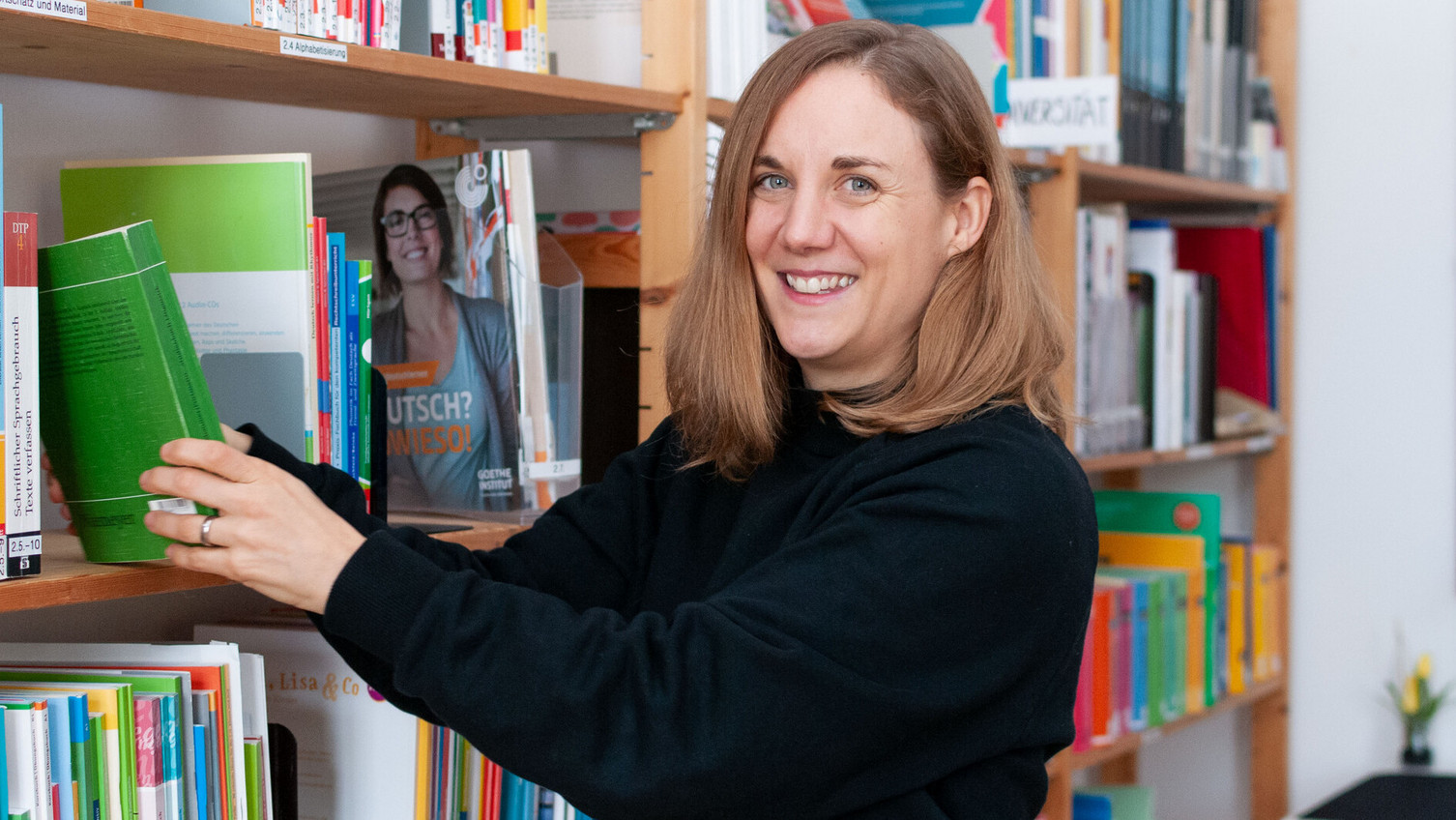New at Leuphana: Prof. Dr. Karina Frick
"Emojis are very communicative"
2022-11-18 The junior professor of applied linguistics studies language in digital media. Her research goes beyond words and punctuation marks.
Are emojis something for those lazy about writing? Not at all, says Karina Frick: "Emojis are very communicative and usually fulfil certain functions, for example, in addition to indicating moods, they also create groups: Thus, certain emojis are charged with their own or special meanings in certain constellations of people." Born in Liechtenstein, she has taken on the assistant professorship for applied linguistics and is particularly concerned with language in digital media and digital writing practices. Her research goes far beyond words and punctuation marks: "Images are also language and, especially in digital media, images and text can hardly be thought of separately," explains the media linguist. For example, emojis can also function as punctuation marks: "In WhatsApp messages, for example, they often appear at the end of messages and can visually underline the content of a sentence, for example in an ironic remark that is concluded with a winking smiley," says the language researcher.
The form of text messages has also long influenced language: "In WhatsApp, for example, the text bubbles convey a certain closedness. Users therefore often do without closing punctuation marks such as a full stop. In this process, the latter take on new communicative meanings, i.e. if a full stop is nevertheless used, it signals something like disapproval.
The researcher refutes the concern that adolescents can no longer write "correctly" because they are only on the move in social media: "Children and adolescents can very well distinguish between leisure and school language," says the linguist. The influence of school is even so great that it sometimes leads to "orthographic shaming": "In our society, spelling is seen as something very fixed and important and also plays a considerable role among young people, for example, in order to convey certain values and attitudes. If someone does not know the rules, they are denied their right to an opinion - or, conversely, people who strictly adhere to the rules are ridiculed," says Karina Frick.
The junior professor did research until recently at the University of Zurich and wrote her dissertation on short messages in Swiss German: "Thanks to SMS and WhatsApp, dialects are also being used en masse in written communication in Switzerland for the first time," explains the researcher. At Swiss schools, only High German is taught as a written language - even if the children only speak one of the many Swiss German dialects at home. It is mainly the younger ones who write down the dialects, although in the meantime older generations have also acquired a taste for dialectal writing. After all, this also reflects the diversity of Swiss German: "A person from Zurich writes differently from someone from Valais, so in this respect dialects are also preserved to a certain extent through writing, whereas spoken language is ephemeral".
In an ongoing research project, Karina Frick is dealing with mourning practices on the internet, such as so-called RIP storms when a celebrity dies or after a terrorist attack: "The linguistic and visual norms that are appropriate in this regard are negotiated between the users themselves in the social media. We experience social media as very emotional overall," says the linguist. The project also aims to contribute to the debate on the dimensions of private and public and the handling of sensitive data on the internet: Individual but culturally shaped and often strongly stereotyped expressions of mourning are shared with strangers, pictures of the deceased are published, personal stories of suffering are made accessible. "These practices also affect our understanding of privacy," explains Karina Frick.
Prof. Dr. Karina Frick studied German Linguistics and Literature at the University of Zurich. She did her doctorate there and in Leipzig on Swiss-German short news. She was scientific coordinator in the Agora project (SNF) "Citizen Linguistics: locate that dialect!" at the University of Zurich. She also taught at the German Department of the UZH and the Zurich University of Teacher Education and was a guest lecturer at the University of Basel. She conducted research as a postdoctoral researcher in the UFSP Digital Religion(s). From 2021 to 2022, she held the professorship of Germanic Linguistics at the Université de Lausanne. In the winter semester of 2022, she took over the assistant professorship for applied linguistics at Leuphana University of Lüneburg.

